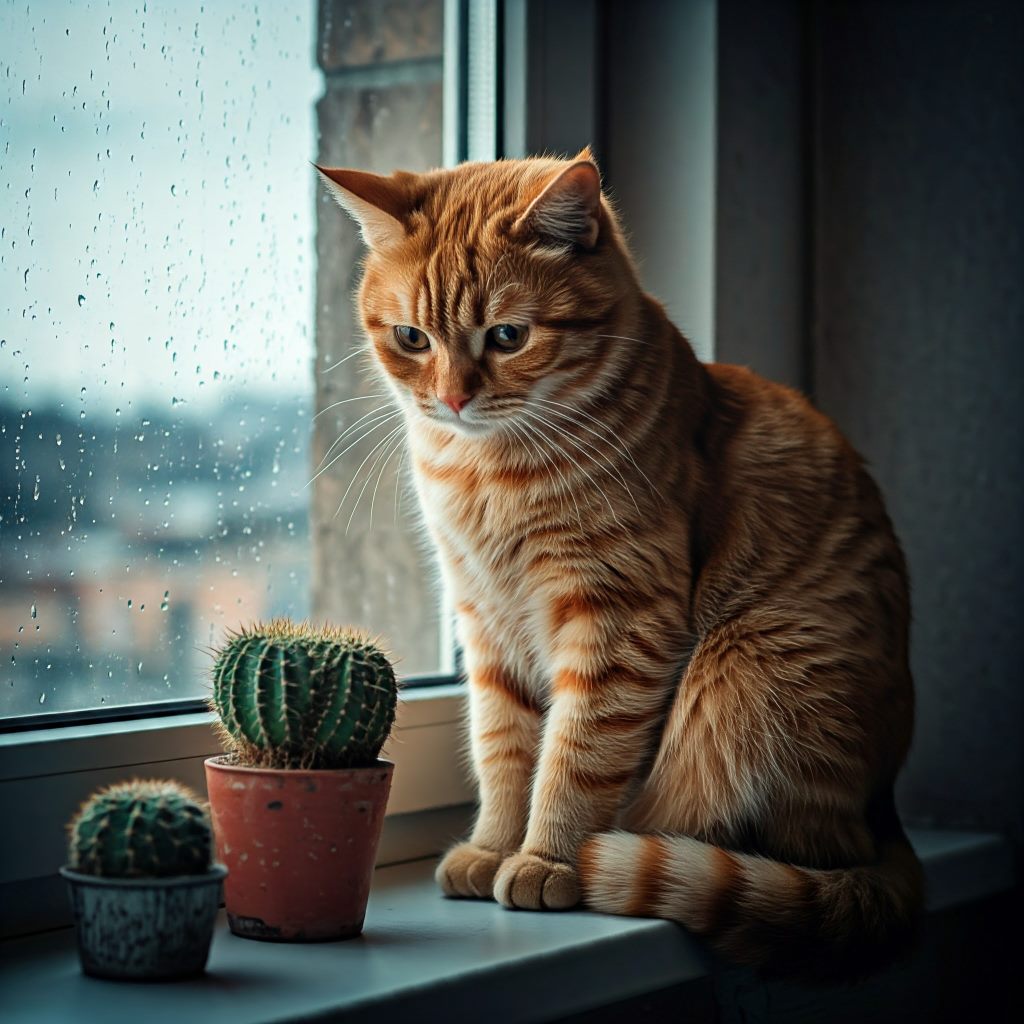
Cats are known to be highly intelligent, but can they also have a form of autism?
Yes, cats do have a form of autism. It is called Feline Asperger’s syndrome. This condition is actually more common than people think, especially in cats that are not spayed or neutered.
Cats with FAS can exhibit the same traits as humans with autism: social withdrawal, repetitive behaviors and sensory issues.
Some cat parents believe it might be because their cat has been mistreated or neglected during its life, which could cause it to become withdrawn and have difficulty interacting with others outside the family unit.
It’s not uncommon to see a cat with odd behavior or a lack of coordination. However, when you see your cat regressing in a way that you haven’t seen before or has never been there before, it can be scary.
If your cat isn’t acting like your normal kitty cat, you should seek immediate help from a vet. There could be something very serious going on with your pet.
There are a number of reasons why cats can have autism-like traits. The first is genetics. Cats come in various shapes and sizes and those with larger bodies tend to have longer legs than smaller cats do.
This means that they will have more energy than their counterparts who are smaller and more compact in shape. It also means they will be able to get around faster than the other cats around them who don’t have as much energy nor reach as far as they do.
After all, if you want to play fetch with your cat or want her to come when called, you’ll need to get your cat moving quickly enough so that she can reach out for the ball or toy before others get there first! If this happens often enough over time
What Does Autism Look Like in Cats?
Autism is a type of neuro developmental disorder that affects the way a person communicates, interacts with others and behaves. The first sign of autism in cats can be subtle, but it is an important one to diagnose early.
The first signs of autism in cats are very similar to those in children – for example, fussy or anxious behavior, repetitive behavior and poor social skills. Cats with autism may also have problems with communication. They may not vocalize or respond to their surroundings as other cats do.
Some signs of autism in cats include:
- A lack of eye contact
- Highly repetitive behaviors
- Inappropriate vocalization (loud mews or cries)
- Inappropriate social interaction with people and other animals
Cats can have a wide range of symptoms when it comes to autism – some cats are more severe than others. Here are some of the most common signs:
- Anxiety or fearfulness around new people or places
- Repetitive behaviors such as spinning, pacing, head pressing or pawing at the ground
- Unusual responses to stimuli such as excessive grooming or spinning around in circles
- Difficulty communicating with humans and other animals, including other cats and dogs
Can Cats Have ADHD or Autism?
The answer is yes, but it’s not the same thing as in humans. Cats do have some of the same symptoms as people with ADHD, especially hyperactivity and impulsivity. But cat ADHD is about more than just being hyperactive or impulsive; it’s about being able to focus and pay attention for longer periods of time than usual.
A cat with cat ADHD might be more likely to run around and play than a cat who isn’t affected by this condition. Or they might be unusually active at night when they sleep, which can lead to destructive behavior like digging up furniture or scratching walls.
Cats may be able to have ADHD or autism. They can have these disorders because of the same things that cause ADHD in children, such as the way they are raised and treated by their parents.
Cats with ADHD or autism will have problems with attention, focus, and hyperactivity. They may also have problems with sensory issues. Cats may also be extremely shy around new people or other animals. These are all signs of a cat having ADHD or autism.
The American Society for the Prevention of Cruelty to Animals (ASPCA) estimates that 1% of all cats show signs of behavioral problems like hyperactivity or attention deficit hyperactivity disorder (ADHD). This number can go even higher with some breeds having a tendency towards aggression or anxiety.
Can Cats Have Mental Disabilities?
Cats are a lot like people in that they are individuals with their own personalities, likes and dislikes. However, they can also be highly intelligent creatures, and they can show signs of being mentally challenged.
Some cats may have behavioral issues, while others may appear to be mentally disabled. While some of these behaviors may be due to the cat’s age or health problems, it’s important to understand that there are different types of mental disabilities that can affect your cat.
Cats are wonderful pets for many reasons. You may have the perfect kitty, but if you’re not sure about their behavior, it’s important to understand what you can expect from your cat.
Some people worry that their cats have mental disabilities because they don’t seem like they’re all there. This is a common misconception, because some cats can be very helpful and even intelligent animals!
No, cats do not have mental disabilities. They may be slower to adapt to new situations than dogs and tend to be less social, but this does not mean they are mentally disabled.
Cats are easily trained and learn quickly. If a cat has a problem with its owner, it may be because the owner has not taken the time to train it properly or has done something wrong that caused it to act out.
However, if your cat was abused or neglected by someone else, then you should take it to a vet immediately so that they can determine what caused the behavior problem and how to fix it.
How Can I Tell if My Cat Has Mental Problems?
A cat’s behavior can vary from day to day, but a cat that is behaving strangely should be taken to the vet for an examination. If the symptoms of schizophrenia are severe, your cat may need to be hospitalized.
Cats suffer from schizophrenia in the same way humans do and can mimic human behavior. Cats with this condition can also have hallucinations, delusions and paranoia. The most common symptom of this mental illness is a change in routine or behavior, such as pacing around the house or trying to escape through windows or doors.
If you have a cat that is acting strangely, but you can’t figure out why, it’s important to take the cat to a veterinarian. Your vet can check the cat’s physical health, and if it has any obvious problems, she will be able to treat them right away.
But if your cat is acting strange but doesn’t have any health issues, then your vet may not know what to do. Sometimes cats get depressed or anxious for no apparent reason. In this case, your vet may recommend medication or other treatments — but there are many things that can also cause mental illness in cats.
If you’re worried about your cat’s mental state, here are some things to look for:
Your cat may have trouble with its litter box, or be aggressive toward other animals or people in the household.
It may become depressed and withdrawn, showing little interest in playing or eating.
It might have frequent accidents around the house or eat strange things (including your furniture).
It may be aggressive toward other animals or people in the household.
If you suspect something’s wrong with your cat, it’s important to take it seriously. Talk to your vet as soon as possible so he can rule out any physical issues before making a diagnosis and prescribing treatment if needed.
Can My Cat Be Schizophrenic?
You’ve probably heard the term “cat schizophrenia” before, but what exactly does it mean? There are a few different types of mental illnesses that cats can suffer from, including:
PTSD. This is an anxiety disorder that occurs when cats are exposed to traumatic events and exhibit stress-related behavior such as panting, hiding in closets, or refusing to climb on furniture.
Cognitive dysfunction syndrome (CDS). This is a condition caused by brain injury or neurological disease that affects your cat’s learning abilities and motor skills. CDS can be caused by a brain injury or stroke, for example.
Conduct disorder (CD). CD is similar to ADHD in humans and involves hyperactivity, aggression toward humans and other animals, destructive behavior and obsessive-compulsive behaviors.
Schizophrenia. If your cat displays any of the following symptoms: delusions (beliefs that others aren’t telling you the truth), hallucinations (seeing things that aren’t really there), disorganized thinking (not being able to complete tasks or follow directions) and paranoia (thinking others are trying to hurt you), then it may be suffering from Schizophrenia.
Summary
Autism Spectrum Disorder (ASD) is a neurodevelopmental condition that affects communication, behavior, and social interaction. It is characterized by a range of symptoms, including difficulty with social interaction, repetitive behaviors, and sensory sensitivities. While there is no scientific evidence to suggest that cats can be diagnosed with autism or ASD, some people believe that certain behaviors observed in cats may be similar to those seen in individuals with these conditions.

